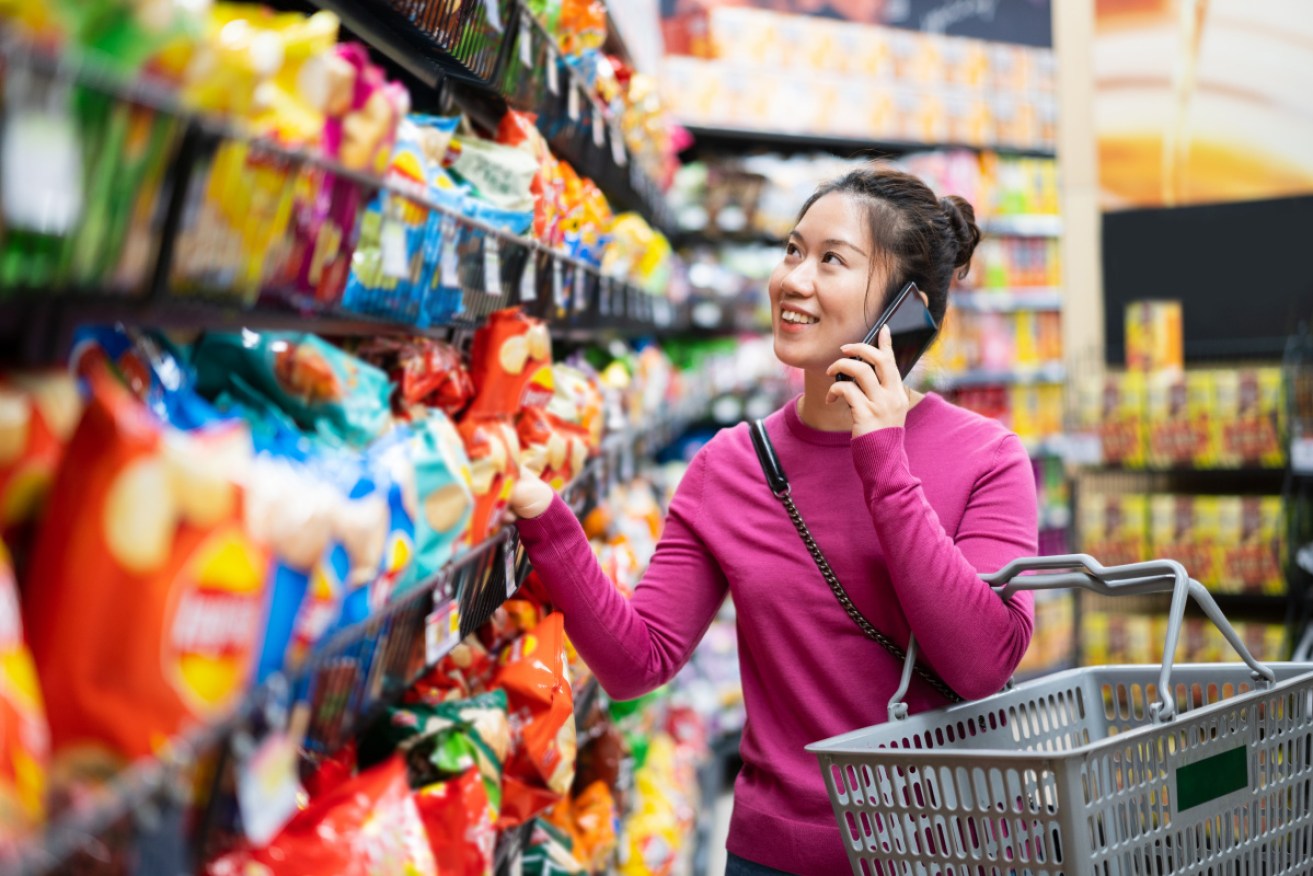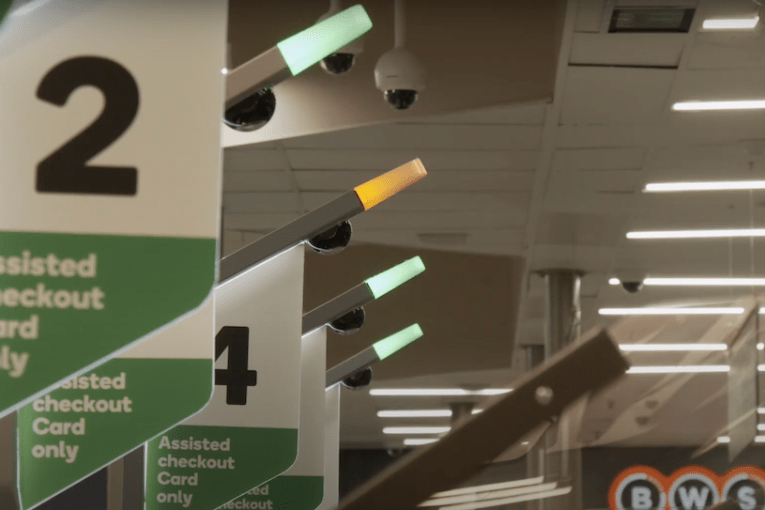These products dominate supermarket shelves, but don’t meet shoppers’ needs


Shoppers are looking for alternatives to the unhealthy foods lining supermarket shelves. Photo: Getty
Australians love to snack, but our tastes are changing,
Nine in 10 Australians snack on packaged goods every week, with 60 per cent of us considered heavy snackers.
But the coronavirus pandemic has thrown a spotlight on health and wellbeing, prompting many to look beyond supermarket aisles laden with salty chips, chocolate and sugar-filled soft drinks.
“Consumers are voting with their mouths and they are choosing healthier options,” Consumer psychologist and Macquarie University associate professor of marketing Jana Bowden told The New Daily.
“The decline in snacking overall across the decade is rather minor – in 2020 the decline was minimal from 90.8 per cent to 88.5 per cent according to Roy Morgan’s data,” Dr Bowden said.
“The real story is in what the Aussie consumer is now snacking on.
“Share of mouth has shifted towards healthier snack options and the health food snack industry is forecast to grow over the next five years as disposable income recovers after the initial economic downturn caused by the pandemic.”
Research released this week by consumer behaviour analysts NielsenIQ showed that Australian supermarkets are still devoting too much scarce shelf space to underperforming, often unhealthy, products and failing to meet the post-pandemic needs of their customers.
A majority of items across key product categories that dominate supermarket shelves are contributing to a tiny proportion of overall category sales, the researchers found.
That means big players like Coles and Woolworths could be left with shelves of unwanted goods, as shoppers move to new products.
The top three categories with the most underperforming products in Australia were sweet snacks, carbonated soft drinks and salted snacks.

Unhealthy snacks take up a lot of shelf space, but tastes are changing. Photo: TND
The sweet snacks category highlighted the “the glut in non-performing products”, the researchers said, with 81 per cent of products contributing to less than 2 per cent of overall category sales.
Carbonated soft drinks and salted snacks were the next biggest culprits, with 77 per cent of products and 68 per cent of products respectively contributing to less than 2 per cent of overall category sales.
Although consumers will continue to “indulge” in unhealthy snacks occasionally, the NielsenIQ data “clearly shows that interest in these products is on the decline from chocolate, to chips and carbonated drinks”, Dr Bowden said.
The pandemic has shifted consumers’ attitudes, priorities and behaviours “significantly”, and supermarkets “need to reflect this consumer value shift through the balance of the range they stock”, she said.
“COVID-19 has shown the consumer that good health doesn’t just come down to luck – we can take control, nurture our wellness and move from surviving to thriving,” Dr Bowden said.
“Consumer value sets have changed and this is driving rising health consciousness and demand for healthier foods, particularly plant-based products.
“At a time of increased focus on health, wellbeing and vitality, consumers are psychologically more comfortable with choosing a nutritious alternative.”
‘Shop local, buy local’ a challenge for Coles, Woolies
From the online shopping boom to the rise of smaller, independent local stores, COVID-19 has changed the way Australians shop.
Supermarkets were among the big winners from the pandemic in 2020 as Australians stocked their fridges, freezers, and pantries with everything from pasta to toilet paper, and hunkered down at home.
But as life returns to normal, the nation’s giants are seeing sales slow off the back of huge highs.
On Thursday, Woolworths reported its March quarter results that showed a dip in food sales, down 2.1 per cent in Australia, as shoppers got more selective about what they were putting in their trolleys.
“While food customers are still shopping less frequently, the growth in the number of items customers put in their baskets is slowing,” Woolies chief executive Brad Banducci said.
Coles‘ quarterly results, reported on Wednesday, showed the supermarket’s sales had dropped by 5.4 per cent.
The ‘shop local, buy local movement’ that took off during the pandemic has turned smaller stores into community hubs and could prove a challenge for the major supermarkets, Dr Bowden said.
“The pandemic has emotionally and socially bonded local communities – we have been as they say ‘in it together’ during the pandemic,” she said.
“Consumers now want to support their local stores, and consumers are feeling much more connected to their neighbourhoods than pre-pandemic.”
Interest in local stores “will continue through 2021 and beyond”, and poses a major challenge for big supermarkets, Dr Bowden said.
“It has redefined the consumer mindset and the big supermarkets will need to think carefully about how they plan to cater to these seismic changes in consumer values.”
The pandemic also caused shoppers to become more budget conscious, and more discerning about what they spend their money on.
“Financially impacted consumers have less money to spend, and will therefore be more focused on essentials,” NielsenIQ Australia’s analytics lead Marcos Senine said.
“That doesn’t mean that they will not have the desire to indulge once in a while.
“The challenge for manufacturers and retailers is to ensure that the products and brands in their portfolio cater to consumers at all ends of the economic spectrum, while also remaining cost-efficient and eliminating wastage.”








